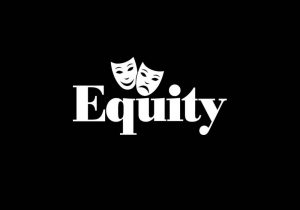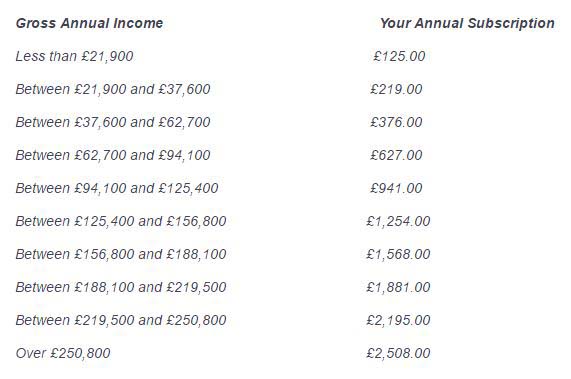 Just like with majority of other professions, British actors in the UK also have their own union. That union is called Equity.
Just like with majority of other professions, British actors in the UK also have their own union. That union is called Equity.
Joining Equity – UK actors union – is one of the first steps an aspiring professional actor should take. Even though it’s not essential, there are several reasons you must do this, and I will outline those below.
But first, what is Equity and what does it do for British actors in the UK?
Equity – Incorporating the Variety Artistes’ Federation.
What Is Equity? All About the British Actors Union in the UK
Equity is a trade union in the UK. It represents not only British actors, but all types of professional performers and creatives in the entertainment industry all across the United Kingdom.
The UK Equity union was formed long time ago back in 1929 to protect lesser known actors and other artists in the vastly growing show business. The organization has worked steadily ever since, making sure that every artist trying to make a living would be treated equally.
In the most basic sense, what Equity does is campaign on behalf of British actors and bring all sorts of issues to the UK’s government, parliament, and other places of influence. The union also protects your rights as a professional performer when you’re looking for, applying for and working with other industry professionals.
When it comes to private sector, Equity is the place you go to about unfair treatment of actors or unreasonable payment structure. They oversee that British actors get paid a reasonable rate and that other rules of fair treatment are followed.
How big is UK Equity? Here’s a quote directly from their website:
“Equity’s 40,000+ members form a cultural community that is of major importance to the UK in artistic, social and economic terms and Equity works to support them by negotiating their terms and conditions including fee structures with all kinds of employers and employer’s groups.
Our 5,000 Student Members are also able to access information and advice to help prepare them for work in the industry.“
Is UK Equity the same as SAG-AFTRA in the US?
Yes, and no. Equity is the same in a sense that it’s a trade union that includes actors. However, while the description of their job may be similar to that of SAG-AFTRA, what UK Equity has the power to do differs from American actors union(s).
Even though Equity’s function touches upon a much broader audience of working performers than America’s SAG-AFTRA (Screen Actors Guild joint venture with American Federation of Television and Radio Artists as of 2013) who’s primary objective is to look out for actors working with cameras, Equity seems slightly less powerful in the showbiz of the United Kingdom.
Equity’s principal function is to negotiate minimum pay and conditions for its member actors, and make sure that everybody gets paid or receives the material that was promised to them.
How to get into Equity?
Becoming a member of UK Equity and receiving your Equity card is easy for most aspiring British actors.
Compared to SAG-AFTRA in the US, where you need to work harder, longer and pay more to get in, with Equity almost any actor can become a member, which naturally reduces the value of the membership.
As soon as you get into any drama school or even any kind of performance-related course in the university, you can become a Student Member of the UK Equity union. That’s your first step towards becoming a full member should you choose to go with formal acting training.
Once you apply to Equity online and pay the dues (£18.25 for Student Membership), you will receive your membership card, and stay a student member until you graduate drama school.
Upon graduation from a drama school, you can (and should) transfer to a Full Membership status.
If you haven’t got into any performance-related course in a drama school or university in the UK, then you only need a few performance credits on your resume and you can join too as a Full Member.
What exactly will Equity do for you?
 On paper, quite a lot. In reality? Not so much other than make you look more professional. It’s like insurance; it’s better to have it but you don’t want a reason to use it.
On paper, quite a lot. In reality? Not so much other than make you look more professional. It’s like insurance; it’s better to have it but you don’t want a reason to use it.
With Equity’s help, it’s potentially easier for actors to negotiate and re-negotiate pays for professional work. Employees also treat actors financial side with more care, knowing that if an actor gets underpaid, it will be taken up with the union.
Ultimately, Equity works more behind the scenes and on the bigger picture to improve the state of the arts professions in the UK. Equity is very proactive at various campaigns for saving theatres and getting better funding.
Finally, Equity often seems to actors like a big brother that you have who’s never around. People know about him, so they won’t mess with you. But he’s not always there when you actually need him.
Now aside from that, UK actors Equity provides job information services, special legal aid, advice on benefits and taxes, insurance services and some other stuff. All of this is quite useful for those who are just starting out.
It’s best if you look it up on their website, as the details of their system are too complex to start explaining here. If you’re confused, then call them up and you’ll get your answer in full detail very quickly.
So should you join Equity?
The bottom line here is that if you’re trying to pursue a career as a professional actor in the UK, you have to be a member of Equity.
Even though getting your Equity card won’t guarantee you any work, nor do they help you find any, that Equity card you receive with your stage name attached will at the very least give you a feeling of being a professional actor when you’re starting out.
Majority of casting call websites allow you to list yourself as an Equity member. If your profile says no, it may or may not affect how casting directors see you.
Even though it’s generally assumed that almost all British actors with just a few credits are members of UK Equity, agents, managers, casting directors and other industry folks still pay attention to that. Students, on the other hand, can weigh pros and cons, with the only con being the cost of joining.
Should drama students join UK Equity?
 When you’re a student on any acting related course getting your degree, I would say it’s worth getting your Equity membership as soon as you can.
When you’re a student on any acting related course getting your degree, I would say it’s worth getting your Equity membership as soon as you can.
You want to do this for three reasons:
- You can reserve a professional stage name so that nobody else can take it;
- You will start saving up towards your Full Membership cost, which is deductible;
- You can apply for acting jobs while studying and work as a semi-professional actor.
Many students consider it unnecessary joining UK Equity while they’re studying because they’re aren’t working during their training. As a result, they miss the opportunity to become an older member of the union and reserve their screen/stage name for their future careers.
At £18.25 annual fee for Student Membership, this is less than you spend when going out on a Friday evening, unless you live on a very tight budget.
Just keep in mind that Equity’s Student Membership does not provide you with all the advantages of Full Membership. However, you don’t necessarily need them while you’re training.
How much does Full Membership cost?
The amount you pay for your Equity membership card will depend on your annual gross income. For full pricing broken down by income, see this section of their website.
Here’s a quick screenshot:

Don’t be misguided though. If for some reason, financial or other, you cannot join UK Equity, you can still get acting work, both in professional and amateur league. Being a member does give you a minimal boost in credibility, but it’s not significant when you’re just starting.
This is what I meant when comparing Equity with SAG-AFTRA. American actors who are not yet members of SAG-AFTRA have significantly less work available to them from big productions, since most US projects that have a little money in their budget will go under the union, and will want SAG-AFTRA actors.
That is not the case with UK Equity where the rules, benefits and restrictions are much more loose. This may be partially a good thing, but ultimately, SAG-AFTRA’s structure is far better in terms of protecting their actors, and providing value to their actors. However, you also pay a lot more ($3,000 at the time of this writing, which amounts to approximately £2,250).





